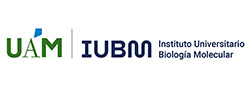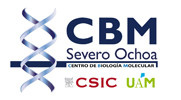Cellular Signaling Networks in Cancer (ONCO-RESECEL)
Prof. Petronila Penela Márquez. Profesora Titular. Departamento de Biología Molecular. UAM.
Intratumor cell heterogeneity and the intrinsic adaptability of tumour cells are fundamental features of cancer that have major consequences for the tumour evolution and the emergence of resistances. Cellular heterogeneity may result from either clonal evolution driven by genetic instability and/or from differentiation of stem-like cells, whereas the dynamic rewiring of signaling networks contributes to cell adaptability. Moreover, lifestyle factors also affect the incidence of cancer and the efficacy of treatments. Therefore, it is urgent to find out the mechanisms involved and the molecular dependencies of tumours for better tackling with cancer treatments. Even though oncogenes and tumour suppressors are main players in transformation and malignant progression, they only account for a limited proportion of the differential gene expression observed in tumoral tissues, pointing out the involvement of additional factors in supporting and scaling up tumours. In this regard, dysregulation of proteins acting as signaling nodes and eliciting post-translational modifications might play a relevant role in different aspects of tumour cell behaviour (motility, cell cycle control, stress responses). Our group is interested in the role of kinases and other posttranslational modifiers in the dynamic rewiring of cell signaling networks, which could be susceptible to being therapeutically targeted.
Results of our laboratory showed that G protein-coupled receptor kinase2 (GRK2) is a versatile molecular hub that modulates signalling mediated by many GPCRs and a growing array of cellular partners. GRK2 is emerging as a relevant onco-modulator in breast cancer through complex regulatory loops affecting stress-related RNA binding proteins (HuR) in the angiogenic response to hypoxic and adrenergic stresses, E3 ubiquitin ligases (MDM2) on centrosome dynamics or cytosolic protein deacetylases (HDAC6) to foster EGF signalling and motility, and the concurrent up-regulation of GRK2 and these activities emerges as a functional signature in breast cancer types beyond the hormone-dependent status.
Our research aims are to identify a) GRK2-governed signalling circuits involved in breast cancer progression and resistance, deciphering the relevant targets modified by phosphorylation, acetylation, ubiquitination; b) consequences of GRK2-based signalosomes on cell cycle dynamics under stress conditions, and their role in cell cycle decision-making processes to differentiation, proliferation or senescence; c) influence of hormonal (adrenergic, estrogenic), metabolic stresses and micro-environmental conditions on GRK2 intertwinement with relevant partners for genomic stability an stroma remodelling, analysing changes in mammary gland morphology and epithelial organization, altered angiogenic processes and tissular fibrosis that facilitate tumour growth and dissemination


